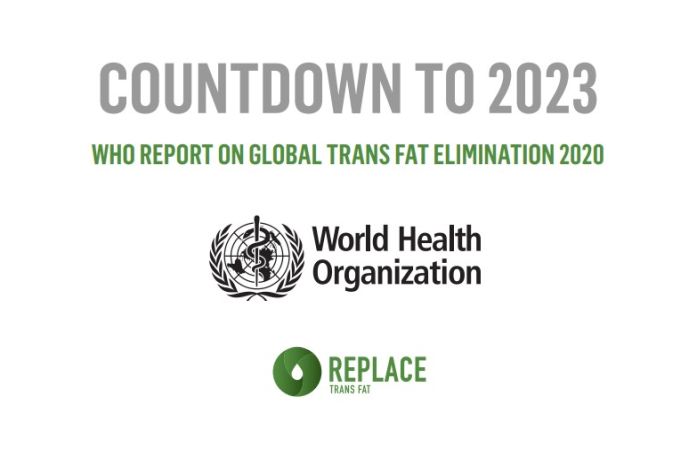GENEVA, Switzerland — Two years into the World Health Organization’s (WHO) ambitious effort to eliminate industrially-produced trans fats from the global food supply, the Organization reports that 58 countries so far have introduced laws that will protect 3.2 billion people from the harmful substance by the end of 2021. But more than 100 countries still need to take actions to remove these harmful substances from their food supplies.
Consumption of industrially-produced trans fats are estimated to cause around 500,000 deaths per year due to coronary heart disease.
“In a time when the whole world is fighting the COVID-19 pandemic, we must make every effort to protect people’s health. That must include taking all steps possible to prevent non-communicable diseases that can make them more susceptible to the coronavirus, and cause premature death,” said WHO director-general Dr Tedros Adhanom Ghebreyesus. “Our goal of eliminating trans fats by 2023 must not be delayed.”
Fifteen countries account for approximately two-thirds of the worldwide deaths linked to trans fat intake. Of these, four (Canada, Latvia, Slovenia, United States of America) have implemented WHO-recommended best-practice policies since 2017, either by setting mandatory limits for industrially produced trans fats to two percent of oils and fats in all foods or banning partially hydrogenated oils (PHO).
But the remaining eleven countries (Azerbaijan, Bangladesh, Bhutan, Ecuador, Egypt, India, Iran, Mexico, Nepal, Pakistan, Republic of Korea) still need to take urgent action.
The report highlights two encouraging trends. First, when countries do act, they overwhelmingly adopt best-practice policies rather than less restrictive ones. New policy measures passed and/or introduced in the past year in Brazil, Turkey and Nigeria all meet WHO’s criteria for best-practice policies. Countries, such as India, that have previously implemented less restrictive measures, are now updating policies to align with best practice.
Second, regional regulations that set standards for multiple countries are becoming increasingly popular, emerging as a promising strategy for accelerating progress towards global elimination by 2023. In 2019, the European Union passed a best-practice policy, and all 35 countries that are part of the WHO American Region/Pan American Health Organization unanimously approved a regional plan of action to eliminate industrially produced trans fats by 2025. Together, these two regional initiatives have the potential to protect an additional 1 billion people in more than 50 countries who were not previously protected by trans fat regulations.
“With the global economic downturn, more than ever, countries are looking for best buys in public health,” said Dr Tom Frieden, president and chief executive officer of Resolve to Save Lives. “Making food trans-fat-free, saves lives and saves money, and, by preventing heart attacks, reduces the burden on health care facilities.”
Despite the encouraging progress, important disparities persist in policy coverage by region and country income level. Most policy actions to date, including those passed in 2019 and 2020, have been in higher-income countries and in the WHO Regions of the Americas and Europe. Best-practice policies have been adopted by seven upper-middle-income countries and 33 high-income countries; no low-income or lower-middle-income countries have yet done so.





